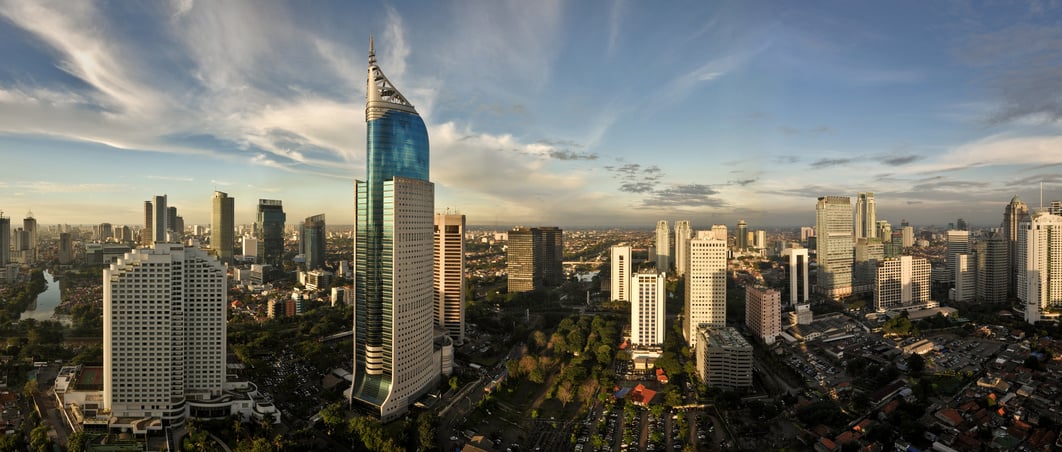In brief
On 22 October 2020, the Minister of Health (MOH) issued MOH Regulation No. 28 of 2020 on the Procurement of Vaccines for Corona Virus Disease 2019 (“COVID-19“) (“MOH Regulation 28“). MOH Regulation 28 is an implementing regulation of the Presidential Regulation No. 99 on the Procurement of COVID-19 Vaccine and Vaccination of COVID-19 (“PR 99”). We have addressed some of the key takeaways under PR 99 in our previous client alert. You can find the link to the client alert here.
MOH Regulation 28 regulates on four main themes of COVID-19 vaccine procurement: (i) types and amount of vaccine for procurement, (ii) procedure for procurement of vaccines, (iii) procedure for payment for vaccines and (iv) guidance and supervision on the procurement of vaccines.
As stipulated under PR 99, MOH has appointed PT Bio Farma (Persero) (“Bio Farma“) as the state-owned enterprise that will lead the procurement and distribution of COVID-19 vaccine in Indonesia. MOH Regulation 28 applies for all COVID-19 vaccines yet to come, not limited to the one that is being developed under the partnership between Government of Indonesia (GOI) (i.e., through Bio Farma) and Sinovac.
Comments on involvement of private parties
Business actors may appreciate the following points relating to their involvement in the procurement process for COVID-19 vaccine under MOH Regulation 28:
- Local private parties and international bodies/institutions may be involved in the procurement of COVID-19 vaccines under MOH Regulation 28, either through direct appointment by the MOH, or by cooperation with Bio Farma.
- Vaccine procurement that involves international bodies/institutions will be conducted through cooperation with the Ministry of Foreign Affairs (MOFA). MOH Regulation 28 does not specify whether ‘international body/institution’ includes overseas companies, e.g., pharmaceutical companies that develop and/or own COVID-19 vaccines outside of Indonesia.
- The procurement, distribution and vaccination of COVID-19 vaccines that is carried out by the MOH and MOFA will be done on a free-of-charge basis. However, a profit margin from sales, on a contract basis, seemed to be still permissible.
Procurement contracts may be entered before the vaccine is out in the market. Accordingly, business actors should begin looking out for business opportunities in the form of partnerships with the GOI for the procurement process of COVID-19 vaccines. It may also be worth checking whether the government has issued any invitation for pitching or tender processes regarding the COVID-19 vaccine procurement program.
We will elaborate on the foregoing points in more detail below.
Key takeaways on COVID-19 vaccine procurement regime under MOH Regulation 28
I. Marketing authorization and standard requirements
All COVID-19 vaccines must be registered at the Drugs and Food Monitoring Agency (“BPOM“) to obtain an emergency use authorization or marketing authorization before they can be procured and/or consumed. Procurement of vaccines that are still in the early stage of development can be conducted before the emergency use authorization or marketing authorization is issued; however, these vaccines can only be consumed or used after the emergency use authorization or marketing authorization for these vaccines has been issued.
After obtaining the marketing authorization or emergency use authorization, COVID-19 vaccines must also fulfill certain requirements, namely relating to the safety, quality and efficacy of the vaccines.
II. Types and amount of COVID-19 vaccine for procurement
The types and amount of COVID-19 vaccine that will be procured (either by government procurement or private procurement) will be determined by the MOH. On 3 December 2020, the MOH issued MOH Decree No. HK.01.07/MENKES/9860/2020 on the Determined Types of Vaccine for the Vaccination of COVID-19. The COVID-19 vaccine that has been determined by the MOH to be used for COVID-19 vaccination in Indonesia are COVID-19 vaccine that are produced by (i) PT Bio Farma (Persero), (ii) AstraZeneca, (iii) China National Pharmaceutical Group Corporation (Sinopharm), (iv) Moderna, (v) Pfizer Inc. and BioNTech., and (vi) Sinovac Biotech Ltd.
Locally produced COVID-19 vaccines will be prioritized in the procurement process for COVID-19 vaccines, including vaccines that are still in development stage or still in the process of production. Development stage means the completion of a second phase of clinical trials for the relevant vaccine, i.e., anything less will render the vaccine not qualified for procurement. It is still unclear how the government would prioritize locally manufactured vaccines, and whether the government has any plan in the near future to mass-produce vaccines locally. The amount of vaccines to be procured will be determined by the MOH, with the following consideration: (i) the annual needs for vaccination, and (ii) the availability of vaccines. The types and amount of COVID-19 vaccines will be determined in every procurement process.
III. Procedure for procurement of COVID-19 vaccines
The procurement of COVID-19 vaccines includes (i) the supply of COVID-19 vaccines and supporting equipment and logistics for vaccination, and (ii) the distribution of COVID-19 vaccines until the delivery points determined by the MOH.
The procurement of the supporting equipment and logistics for vaccination can be supplied by the supplier of the vaccine or by a different provider. If COVID-19 vaccine and the supporting equipment and logistics for vaccination are supplied by the same supplier, that supplier should offer a competitive price as set out in the e-catalogue. The distribution of COVID-19 vaccines along with the supporting equipment and logistics for vaccination should be addressed in the procurement contract and the provider will be responsible for the distribution of the COVID-19 vaccine.
The procurement of COVID-19 vaccines may be conducted through the following channels:
(a) Appointment of a state-owned company
The MOH has stipulated under MOH Regulation 28 that Bio Farma will be appointed as the state-owned company that will carry out the procurement of COVID-19 vaccines. The appointment of Bio Farma by the MOH will also include the determination of the types and amount of the COVID-19 vaccine to be procured. The procurement of COVID-19 vaccines by Bio Farma includes the procurement through vaccine production and/or importation of COVID-19 vaccine products. Bio Farma may procure COVID-19 vaccines from its subsidiaries, or cooperate with other business entities and/or other local or foreign institutions for the procurement. The procurement of COVID-19 vaccines by Bio Farma will also include the procurement of supporting equipment and logistics for vaccination.
The procurement process of COVID-19 vaccines by Bio Farma will be based on a procurement contract between Bio Farma and the MOH. The procurement contract may also include the purchase price of the COVID-19 vaccine, which will be determined by the MOH. Bio Farma is required to provide periodical reports on the procurement process to the MOH.
(b) Direct appointment of business entities
The MOH may directly appoint a business entity to procure COVID-19 vaccines if the national need for the vaccines cannot be met by the appointment of Bio Farma. A local business entity (e.g., 100% Indonesian owned, or foreign owned companies in Indonesia) that has met the requirements to be a provider, such as (i) a pharmaceutical industry license or a pharmaceutical production certificate and (ii) a good manufacturing practices certificate, may be appointed by the MOH to conduct the procurement of COVID-19 vaccines. The appointment of a business entity by the MOH will also include the determination of the types and amount of the COVID-19 vaccine to be procured.
For the distribution of the COVID-19 vaccine, the appointed business entity may cooperate with a wholesale pharmaceutical company that has obtained a wholesale pharmaceutical distribution certificate and a good distribution practices certificate.
(c) Cooperation with international institutions/agencies
The cooperation with international institutions for the procurement of COVID-19 vaccines should be conducted with one or more of the following:
- The Coalition for Epidemic Preparedness Innovations (CEPI)
- The Global Alliance for Vaccines and Immunizations (GAVI)
- other international institutions or agencies
The types and amount of the COVID-19 vaccine procured through cooperation with an international institution will be determined by the MOH. The cooperation for COVID-19 vaccine procurement with an international institution may be conducted by a state-owned company determined by the MOH. The cooperation will only be for the procurement of COVID-19 vaccines and will not include the procurement of supporting equipment for COVID-19 vaccination. The procurement of COVID-19 vaccines will be conducted based on a cooperation agreement between (i) the international institution and (ii) the appointed state-owned company or the relevant ministry (i.e., the MOH or the Minister of Foreign Affairs).
IV. Payment procedure
The payment for the performance of the procurement will be based on in the procurement contract. For procurement processes conducted through Bio Farma or an appointed business entity, this could be (i) payments based on the stages of the performance of the obligations or (ii) a lump sum payment after the completion of all the obligations under the procurement contract. The payment procedure for the procurement of COVID-19 vaccines conducted through cooperation with an international institution will be based on the payment procedure agreed by the parties in the cooperation agreement.
The procurement contract may include an advance payment or a down payment of more than 15% and less than 50% of the contract value in one year as agreed by the parties. For a procurement process conducted by a state-owned company with an advance payment or down payment, the state owned company is required to provide a Statement Letter of Capability as a Goods/Services Provider (Surat Pernyataan Kesanggupan Penyedia Barang/Jasa (“SKPBJ“)) to perform its obligations under the procurement contract. For a procurement process conducted by an appointed business entity with an advance payment, the business entity is required to provide an SKPBJ to perform its obligations under the procurement contract. If the procurement process is conducted with a down payment, the business entity is required to provide security over the down payment based on the prevailing regulations.
V. Guidance and supervision
The guidance and supervision of the procurement process under MOH Regulation 28 will be conducted by the MOH, the Government Internal Supervisory Apparatus, the Government Goods and Services Procurement Institution, the National Government Internal Auditor and the Drugs and Food Monitoring Agency. The guidance and supervision will be done with the aim of, among other things, maintaining the availability of COVID-19 vaccines that have fulfilled the standards and/or safety, quality and efficacy requirements, and maintaining the distribution channels.
* * * * *





